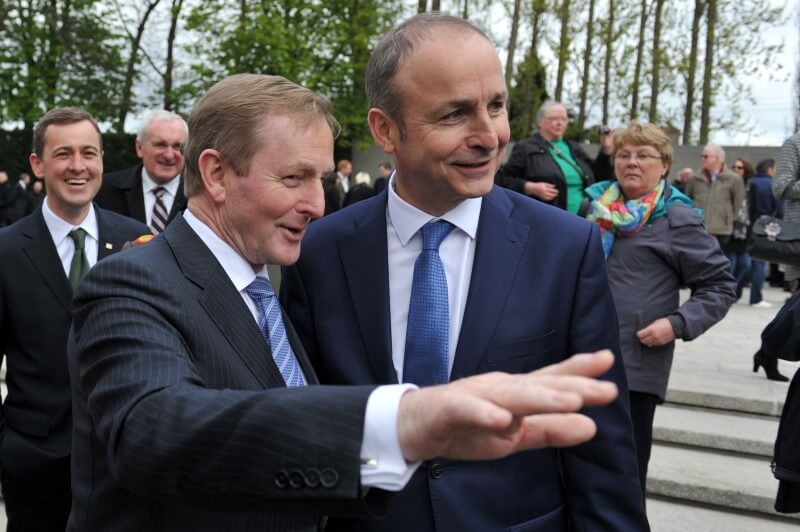By Padraic Halpin
DUBLIN (Reuters) – Support for Ireland’s main opposition party has surged since its decision to let Prime Minister Enda Kenny’s minority government survive by offering qualified assistance in parliament, raising pressure on Kenny to announce when he intends to step aside. Kenny returned to office in May as head of a government that is due to run until the end of 2018. But he has said he will not lead his Fine Gael party into the next election – though without committing to when he will stand down. Lawmakers from the center-right party said planning for Kenny’s departure was brought up for the first time at an internal Fine Gael meeting on Wednesday, a day before a poll showed it trailing rival Fianna Fail by nine percentage points. “There will be a time in the not too distant future, I expect, when leadership is going to have to be discussed in Fine Gael,” Simon Coveney, Ireland’s minister for housing and one of two clear bookmakers’ favorites to take over, told reporters. One Fine Gael backbencher said he would like Kenny to give an outline of his intentions once the budget for next year is introduced in mid-October.
After suffering heavy losses in February elections, Fine Gael returned to power with the backing of a group of independent lawmakers and facilitated by Fianna Fail.
Fianna Fail, also center-right and a major political force which lost power over the 2008 financial crisis, agreed to help Kenny’s government by abstaining on key votes while being able to hand the government embarrassing defeats in others. Backing for Fianna Fail rose to an eight-year high of 33 percent compared to the 24 percent it won at the election, the Irish Times/IPSOS MRBI poll showed.
Fine Gael fell two points to 24 percent. Fianna Fail’s surge came mostly at the expense of independent candidates who fell 8 points to 22 percent, which the survey’s authors said may be partly due to Britain’s vote to leave the European Union. “It is impossible to avoid the temptation to link the swing toward a more cohesive opposition, and away from a fragmented one, to the uncertainty created by the UK’s vote to leave the EU,” Ipsos MRBI’s Damian Loscher said. “It would also be foolish to stop at Brexit in the search for an explanation. Independents are mavericks in opposition but can cause mayhem in government, and the precariousness of the current arrangement is not giving voters the added comfort they need in a time of uncertainty.” (Editing by Richard Balmforth)
Irish main opposition poll surge piles pressure on Kenny

By Padraic Halpin


















